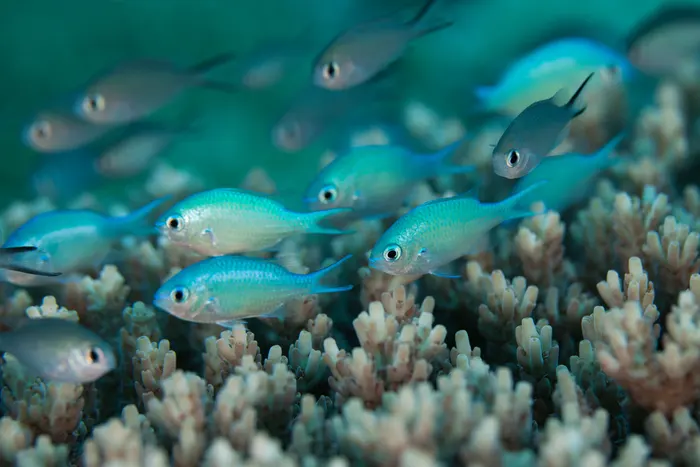A recent study has shown that Artificial light shining from coastlines around the world is acting like “a midnight fridge” full of tasty snacks, threatening young fish who can be drawn to it and who are then eaten by predators also attracted by the brightness.
Jules Schligler, the lead author of the study at the international coral ecosystem research centre in Mo’orea, French Polynesia, said that It has long been established that light pollution hampers people’s ability to see the night sky and harms migrating birds, insects and other animals. But its impact on marine ecosystems has rarely been taken into account.
Schligler said that nearly a quarter of the world’s coastline, excluding Antarctica, was artificially lit, according to a satellite study carried out a decade ago, and it was probably more than this by now. His study, which involved creating 12 coral test sites in the waters off Mo’orea and shining an underwater light on half of them, found the artificially lit corals first attracted fish larvae and then predators that ate them.
Read also: Report: Heat-related deaths in Phoenix, Arizona, have nearly doubled this year
“We found that the coral with the light attracted two to three times more fish compared to the naturally lit control site,” Schligler told the Guardian. “The coral with the [artificial] light is a bad environment for the larval fish because there are more predators, opportunistic fish passing by, that ate them.”
The findings, he said, meant artificial light should be seen as “another threat to marine animal populations and coastal ecosystems”.
And while artificial light might appear to benefit predator fish, Schligler said more research was needed. “It could be bad for their sleep, or they could eat too much, we don’t yet know.”
The study did not look at why the larval fish were drawn to the artificial light, but there were two possibilities, he said. “The artificially lit coral could be like a midnight fridge full of tasty plankton that are drawn to the light too. The plankton attract the larvae, and then the larvae are followed by their predators.
“Or it might be both the light itself and the prospect of food that attract them. Either way it makes them all behave unnaturally.”
The findings, presented at the Society for Experimental Biology conference in Prague, focused on two species – yellowtail dascyllus (Dascyllus flavicaudus) and blue-green chromis (Chromis viridis) – but could be applied more broadly, Schligler said.
Story was adapted from the Guardian.
